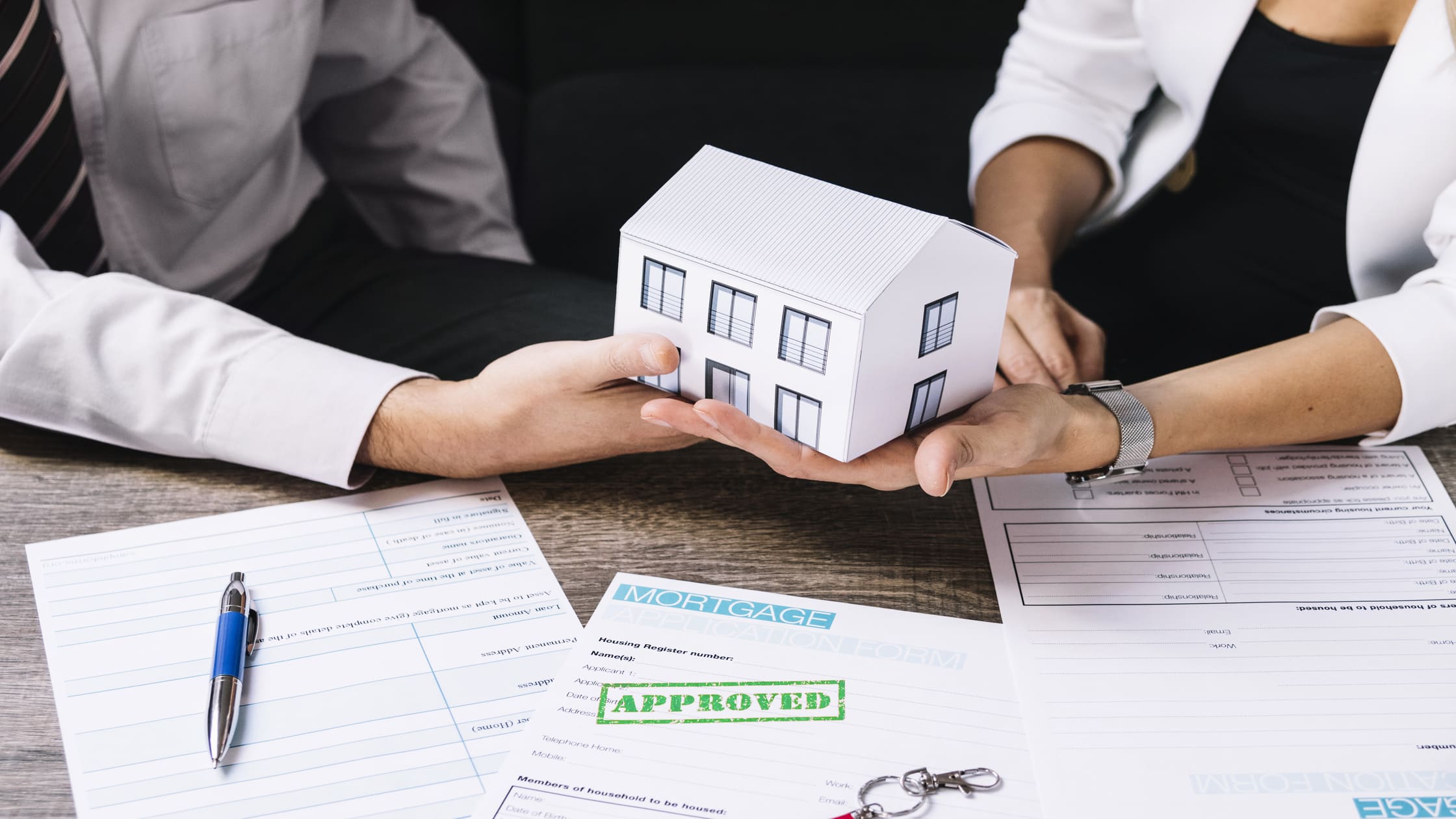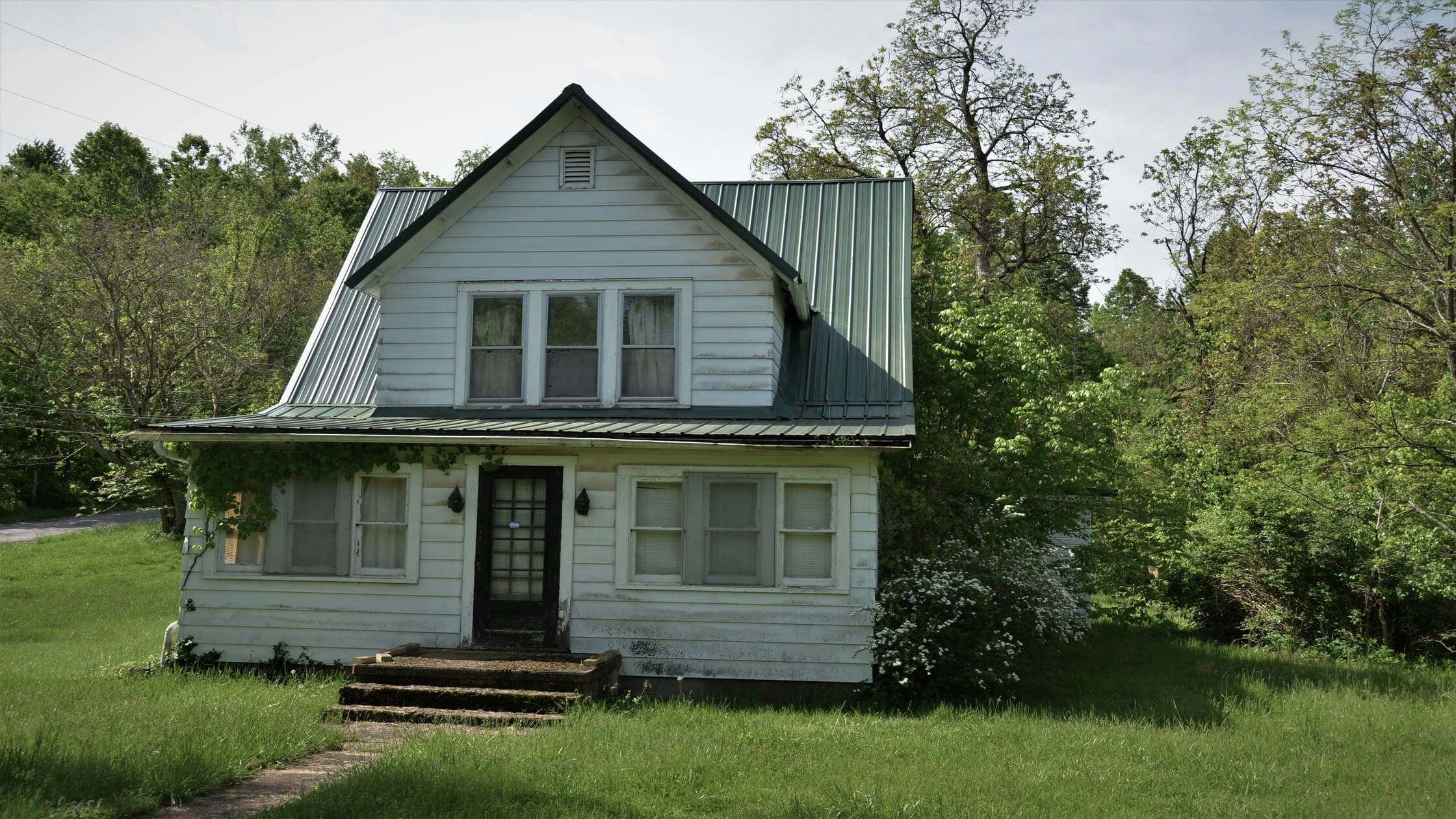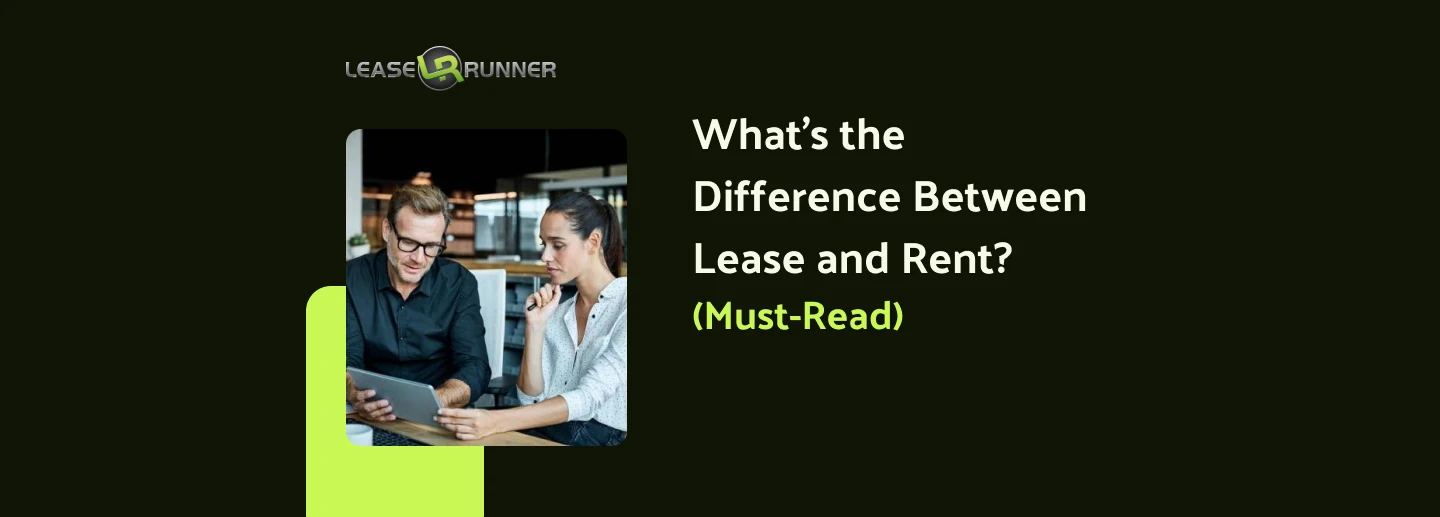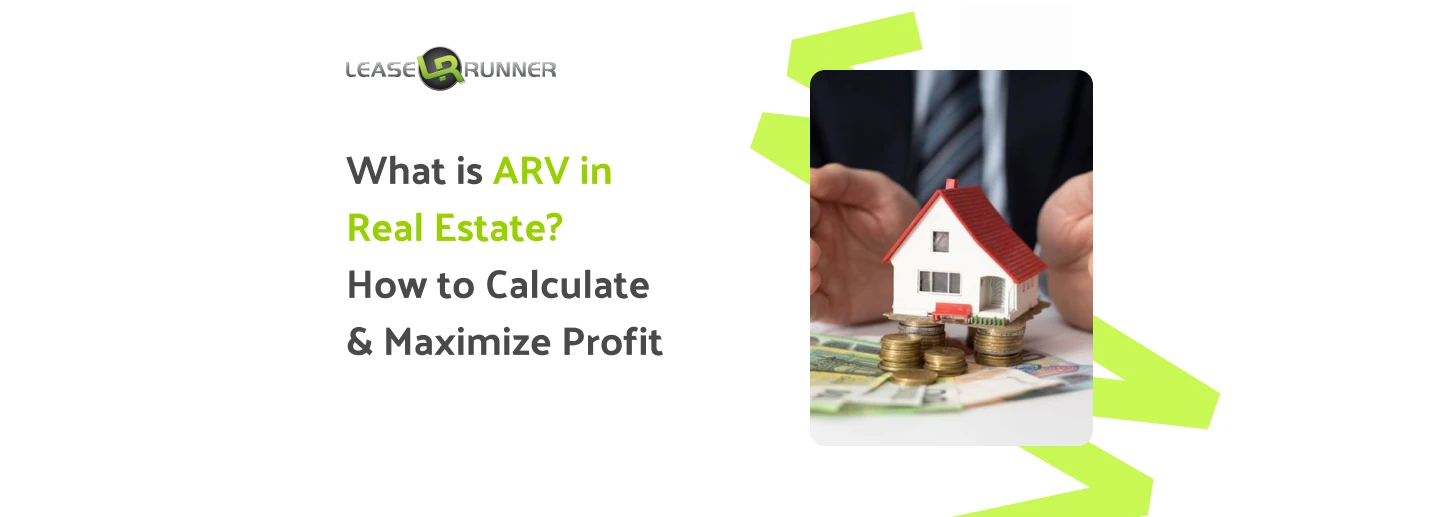Are you confused about what's the difference between a lease and rent? Our detailed guide covers every aspect, from contract terms to financial impacts so that you can choose the best option for your needs.
Whether you're a first-time renter or a seasoned landlord, knowing these distinctions can save you money and headaches. Don’t hesitate any longer, scroll down for more useful information now.

Quick Facts Table About “What’s The Difference Between Lease and Rent?”
What Does It Mean When a House Is for Lease vs. for Rent?
When you see a house "for lease" or "for rent," the terms indicate different types of agreements and commitments. The phrase What's the difference between lease and rent helps clarify these distinctions.
What Is a Lease in Real Estate?
A lease is a formal, long-term contract between a property owner and a tenant. When you ask, “What is a lease for a house”, you are referring to an agreement that typically lasts for a fixed period. The lease spells out all the terms and conditions, such as the monthly payment, responsibilities for maintenance, and the rules of occupancy.
- Fixed Terms: Once signed, the lease terms remain constant until the contract expires.
- Legal Obligations: Both parties are bound by the contract, and breaking it can lead to penalties.
- Predictability: This offers predictability for both landlord and tenant.
What Does Rent a Home Mean?
Renting a home usually involves a more flexible arrangement. When you ask, what it means to rent a home, it implies a shorter commitment, often on a month-to-month basis. Renting is typically less formal and allows for easier changes if circumstances change.
- Flexibility: Rental agreements can often be ended with a shorter notice period.
- Variable Terms: The cost may fluctuate and is not locked into a long-term contract.
- Ease of Termination: Tenants and landlords have more freedom to alter the agreement.
In most contexts, the terms "lease" and "rent" are often used interchangeably and carry similar meanings. However, in certain situations, there can be specific distinctions between them based on the nature of the agreements. The best choice for you will depend on how long you plan to stay in one place and the specific terms that suit your needs.
Key Differences Between Leasing and Renting
Both leasing and renting have their own sets of rules and benefits. Let’s explore the key differences to answer what's the difference between lease and rent in clear terms.
Lease Agreements – What Landlords & Tenants Should Know
Lease agreements are detailed and binding contracts. They include:
- Fixed Duration: Usually lasting 6, 12, or 24 months.
- Stable Payments: The monthly payment remains the same during the lease term.
- Defined Terms: Responsibilities for maintenance, repairs, and renewals are clearly outlined.
- Legal Recourse: Breaching a lease can lead to legal actions and penalties.
These agreements offer security for both parties but require a firm commitment.

Renting Agreements – More Flexible but Less Predictable
Renting agreements, on the other hand, are typically month-to-month arrangements. They are characterized by:
- Flexibility: Easier termination with a short notice period.
- Variable Costs: Rent may change more frequently.
- Informality: Terms may be less detailed, leading to potential misunderstandings.
- Less Security: Landlords or tenants can often terminate the agreement with minimal notice.
While renting offers flexibility, it may come with less predictability compared to leasing. Understanding what's the difference between lease and rent here is key to choosing the right option for your needs.
How Lease Agreements Work in Real Estate
Lease agreements have specific structures and rules. This section details how they work, further clarifying what's the difference between lease and rent.
How Does a Lease Work for a House or Apartment?
Signing a lease means committing to a set rental price for a fixed period, giving you stability and predictability. Your rent won’t suddenly go up, and both you and the landlord are legally bound to follow the agreement.
This protects you from unexpected changes but also means you’re responsible for sticking to the terms—like paying rent on time and following any rules in the lease. Before signing, check if there’s a renewal option or any fees for breaking the lease early so you’re not caught off guard later.
How Long Are Leases on Apartments or Homes?
Leases can vary in length:
- Short-Term Leases: Often 6 months.
- Standard Leases: Typically 12 months.
- Long-Term Leases: Sometimes extend to 24 months or more.
This information is key when comparing how long are leases on apartments with the flexible nature of rental agreements. It underscores what's the difference between lease and rent in terms of commitment and stability.
Can You Lease a House Instead of Renting?
A common question is, can you lease a house? The answer is yes. Both leasing and renting are viable options, but they suit different needs and circumstances.
When Leasing a Home Makes More Sense Than Renting
Leasing is ideal if you want stability and predictable payments:
- Fixed Commitment: Leasing locks in your rent for a set period.
- Long-Term Planning: It allows you to budget better over time.
- Legal Protection: The lease contract offers clear legal recourse if either party fails to meet obligations.
When Renting a Home Is the Better Option
Renting is a better choice if you need flexibility:
- Short-Term Needs: Ideal for those not ready to commit long-term.
- Variable Lifestyle: Perfect if you expect changes in your living situation.
- Ease of Exit: Renting typically requires less notice to terminate the agreement.
How Leasing & Renting Affect Landlords & Tenants Differently

The impacts of leasing versus renting vary for both landlords and tenants. Here we break down the pros and cons for each group, adding depth to what's the difference between lease and rent.
Leasing vs. Renting: Pros & Cons for Landlords
For landlords, leasing provides stable income, lower turnover, and legal protection, but limits flexibility—rent can’t be adjusted until renewal. Renting, on the other hand, offers quick tenant changes and market adaptability but comes with unpredictable income and higher turnover costs.
Leasing vs. Renting: Pros & Cons for Tenants
For tenants, leasing ensures fixed rent, stability, and legal protection, but lacks flexibility—breaking a lease can be costly. Renting offers short-term convenience and easier relocation, but comes with variable rent and less security.
Bottom line? Choose leasing for stability and renting for flexibility, depending on your long-term needs. This analysis of what's the difference between lease and rent shows that the choice depends on your personal and financial needs.
Which Option Is Best for You? (Landlord & Tenant Guide)
Choosing between leasing and renting is a personal decision that depends on your goals, lifestyle, and market conditions. Consider the following points:
For Landlords:
- If you value long-term stability and predictable income, leasing may be the best choice.
- If you prefer flexibility and the ability to adjust rent quickly, renting might be more appealing.
For Tenants:
- If you need stability and want a fixed rent for a longer period, a lease is ideal.
- If you are not ready to commit long-term and value flexibility, renting is a better option.
Understanding what's the difference betweena lease and rent will help you make the best decision for your situation. Consider your priorities and the trade-offs involved to determine the ideal arrangement.

Conclusion
In this guide, we have explored what's the difference between lease and rent from every angle. We have defined what a lease is and how it works compared to renting a home. We have also looked at the benefits and drawbacks of each option, the fee structures, the duration, and the impact on both landlords and tenants.
By understanding these differences, you can make better decisions that fit your needs and circumstances. Remember, when choosing between leasing or renting, consider your long-term goals, financial stability, and the flexibility you need.
Whether you choose a lease or opt for renting, being well-informed will help protect your interests and ensure a smooth real estate experience. For more information, visit our LeaseRunner blog!
FAQs
Q1. What does it mean when a house is for lease?
It means the property is available under a fixed-term contract with set rental terms.
Q2. How does a lease work on a house?
A lease sets a fixed rental rate, duration, and detailed responsibilities for both the tenant and the landlord.
Q3. Is for lease the same as for rent?
No, a house for lease implies a fixed-term contract, whereas rent usually suggests a more flexible, short-term arrangement.
Q4. How long are leases on apartments?
Leases on apartments can range from six months to a year or more, depending on the agreement.




